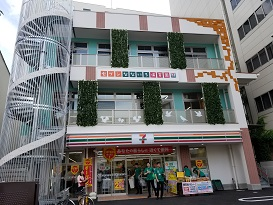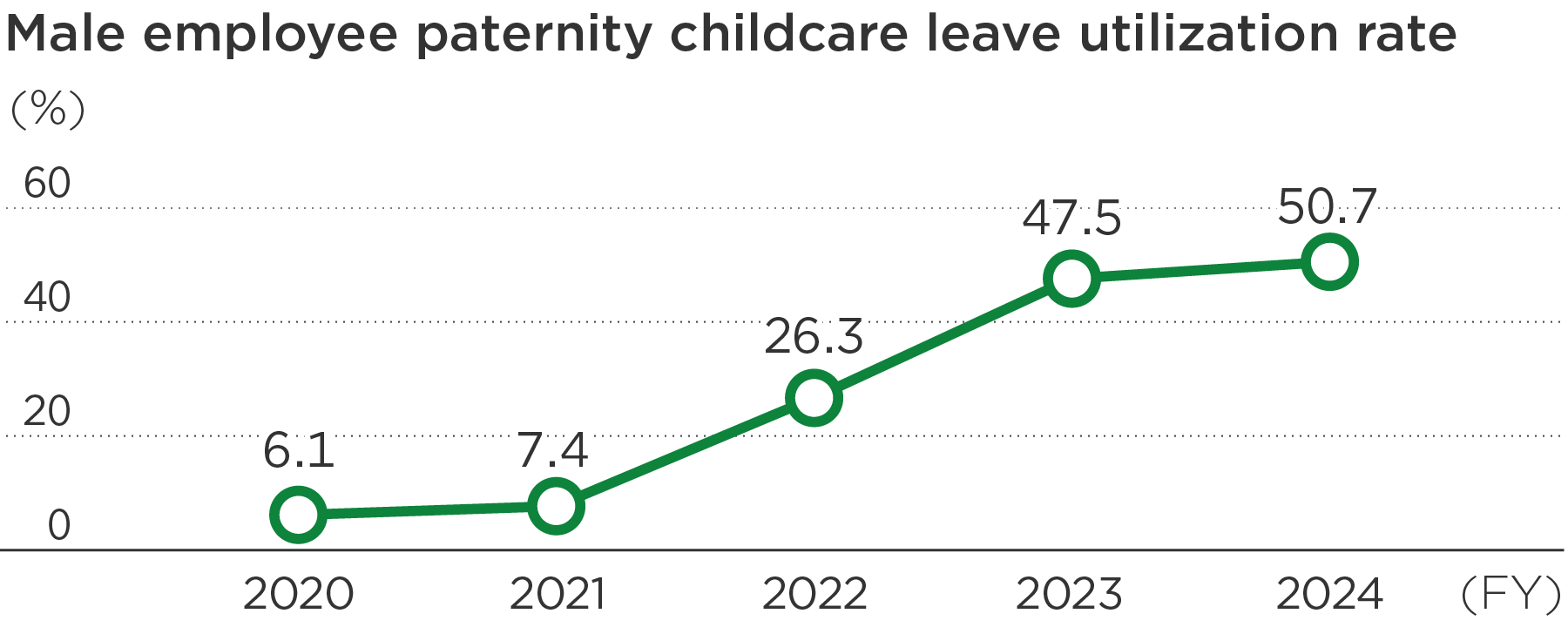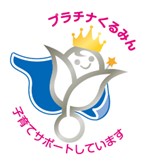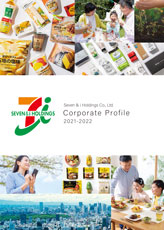- Top
- Sustainability
- Seven & i Holdings Material Issues
- Material Issues 5
- Achieving Work-Life Balance
- Sustainability
- Message from the Representative Director & Executive Chair (Kaicho)
- Basic Policies of Sustainability Initiatives
- Sustainability Management
- Stakeholder Engagement
- Business Partners
- Seven & i Holdings Material Issues
- Corporate Governance
- Compliance
- Information Security and Personal Information Protection
- Human Rights Initiatives
- Human Capital Initiatives
- Climate and Nature-related Information Disclosures —Responses to TCFD/TNFD Recommendations
- Social Contribution Activities
- Business Continuity Initiatives
- Overseas Initiatives
- Sustainability Data Book
- External Recognition and Awards
- SASB/GRI Index
- Index for Researchers
- Keyword search
- Editorial Policy
- Social
- Environment
Achieving Work-Life Balance
Seven & i Holdings Co., Ltd. and its consolidated subsidiaries (hereinafter referred to as "our Group") are promoting the concept of “work-life synergy,” which aims to create synergies by utilizing the perspective of a consumer in work while simultaneously leveraging the lessons of work in life. We have a range of assistance systems that exceed minimum legal requirements to enable diverse employees work with peace of mind. To make it even easier for employees to work, we are also taking steps to curb long working hours and encourage the use of paid leave.
Enhancing Systems for Diverse Workstyles
Our Group has implemented various systems that go beyond legal minimums to enable employees, including part-timers, to continue working comfortably while engaging in childcare or nursing care. For example, there are childbirth and childcare programs and a family care program available for employees, both men and women, who have worked at the company for at least a year; the programs are also available to part-time employees. The programs are freely selected by individual employees, and combining a leave program with a reduced work hours plan is also possible.
Further, we have introduced the Work-Life Support Plan (commonly referred to as the Waraou [“Smile”] Plan), which aims to support employees’ diverse life events and learning experiences and, in addition to childcare and nursing care, are accommodating the needs of a diverse array of work styles by means including support for employees who are continuing to work while receiving treatment for infertility, kidney disease, and cancer.
Childcare and Family Care Assistance Systems (Ex. Ito-Yokado)
| Childcare Assistance System | Family Care Assistance System | |
|---|---|---|
| Reduced work hours |
Employees can work reduced hours until April 15 of the year their child starts junior high school. *Can be combined with other leave programs. |
Employees can work reduced hours for up to three years following the initial reason. *Can be combined with other leave programs. |
| Work until 7:00 p.m. | Full-time employees can end their workday by 7:00 p.m. through March 31 of the year their child graduates from junior high school | None |
| Leave |
Employees can return to work after taking leave for up to two years. *Up to three years depending on the circumstances (Can be combined with short working hours). |
Employees can take up to a one year of leave following the initial reason. The leave can also be split up and taken at different times. *Can be combined with short working hours. |
| Reemployment | Employees resigning to focus on childcare are given priority in hiring within three years. | Employees resigning to focus on family care are given priority in hiring within three years. |
|
Limitations on /exemption from overtime work Exemption from late night work |
Exemption from/limitation on overtime work and exemption from late night work until April 15 of the year in which the employee’s child reaches 1st year junior high school allowed | When providing nursing care for a family member, employees may have limitations on or be exempted from overtime work. They may be exempt from late night work |
| Child nursing care /nursing care leave | When giving nursing care to a child of pre-school age, employees may take up to five days off per year for one child or 10 days off (paid) for two children or more in half day units | When providing nursing care for a family member, employees may take up to five days off per year for one family member or 10 days off (paid) for two family members or more in half day units |
| Day-off for childcare | If an employee has a pre-school aged child, they may take up to five days off per year (paid) for childcare |
― |
Childcare Support for Employees
Our Group implements various initiatives to provide childcare support to the Group employees.
Operation of Seven Nanairo Nursery Schools
Since October 2017, Seven-Eleven Japan has been operating on-site Seven Nanairo Nursery Schools for the owners and employees of 7-Eleven stores, local residents, and employees of Seven-Eleven Japan. A total of six facilities have been opened in Tokyo (Ota-ku, Setagaya-ku, and Machida), Sendai, Kyoto, and Hiroshima to provide work-friendly environments.

Seven Nanairo Nursery School
Introduction of Daycare Facilities in Stores
Ito-Yokado has introduced six daycare facilities comprising authorized daycare centers and corporate-led nurseries as tenants in its shopping centers in Tokyo and three other prefectures. These facilities are used by employees and local residents.
Return-to-Work Support after Childcare Leave
Our Group companies provide guidance to employees returning to work after taking childcare leave and implement community activities aimed at building networks and allaying the anxieties of child-raising and pregnant employees.
York, for example, shares internal information with employees on childcare leave via mail every two months and provides updates on their current status. Additionally, to promote the use of childcare and nursing care support systems, York is also engaging in awareness activities through video education tools.
Promotion of Participation in Housework and Childcare by Men
Our Group have established various systems that exceed minimum legal requirements to ensure that employees can continue to work with peace of mind even in the case of life-changing events and obligations such as childbirth, childcare, and nursing care. As a unique childcare leave system within the group, we have established a special system that allows employees with preschool children to take five days of paid leave per year on a per-day basis. This day-off can be taken for general childcare reasons, such as attending a child's entrance or graduation ceremony or sports day, and has been widely used by many employees since its introduction.
In addition, we are implementing various measures to encourage male employees to play their part in housework and childcare, including online seminars at Group companies.

- *
- Totals are for eight companies: Seven & i Holdings, Seven-Eleven Japan, Ito-Yokado, York-Benimaru, Akachan Honpo, THE LOFT, Denny's Japan, and Seven Bank. Additionally, the figures for FY2022 and before include Sogo & Seibu and exclude THE LOFT.
External Evaluation Related to Childcare Support
Ito-Yokado received “Platinum Kurumin Plus” certification from the Ministry of Health, Labour and Welfare as a company that supports the raising of children. Companies that have previously received “Kurumin” and “Platinum Kurumin” certification are eligible to be awarded “Platinum Kurumin Plus” certification when certain requirements are met in relation to initiatives to support the balancing of work and fertility treatment.
In addition, Seven & i Holdings, Seven-Eleven Japan, York-Benimaru, Denny's Japan, Akachan Honpo, Seven Bank, and Seven Financial Service have received the “Kurumin” certification (as of August 31, 2025).

Platinum Kurumin Plus Mark
Support for Balancing Work with Nursing Care
A survey on employees' caregiving situations revealed that approximately 70% of employees may need to balance work and caregiving in the near future, indicating that this will become a significant issue. To raise awareness about balancing caregiving and work, we have created a "Work and Caregiving Balance Support Handbook" which is utilized in training sessions across group companies. We also focus on publicizing consultation services and introducing examples of balancing work and caregiving in the company newsletter, striving to create an environment where balancing work and caregiving is easier.
Work-from-Home
Our Group companies have established a telecommuting system that allows for flexible working arrangements, effectively utilizing time and location, particularly in the headquarters departments.
Seven & i Holdings used to designate the employee's home as the workplace for telecommuting. However, starting in 2022, under certain conditions, employees are allowed to work from locations other than their home for purposes such as childcare, caregiving, or securing a focused work environment.
Curbing Long Working Hours Through the Utilization of Diverse Workstyles
Our Group believes it is important to establish proper work environments to create comfortable workplaces. We work to curb long working hours and raise the percentage of paid leave taken. Specifically, as well as promoting the visualization of overtime work, Group companies promote the review of operations at departments with a lot of overtime work and work allocation and endeavor to foster a corporate culture of seeking to improve the work environment through the implementation of no overtime work days, display of posters, and other measures. Furthermore, the Group has set a target of achieving at least 70% for the percentage of annual paid leave taken. Group companies are taking steps to promote the acquisition of leave, such as by encouraging employees to take long periods of leave twice a year and visualizing leave acquisition plans.
Introduction of Staggered Working Hours
Seven & i Holdings, Seven-Eleven Japan, Seven Bank, and other Group companies have introduced staggered working-hour systems enabling employees to choose their working hours. The aim is to realize environments in which individuals can select their workstyles to suit their jobs and individual circumstances and work flexibly. Companies are seeking to promote more active and efficient workstyles by bringing forward or delaying start and finish times. At Seven & i Holdings, employees who had been working shorter hours for reasons of childcare obligations are now able to work full time using staggered working hours, which is contributing to support for housework and childcare by employees in households where both parents are working.
Implementation of Variable Working Hours System
Since 2017, Denny's Japan has introduced a one-month variable working hours system that allows work to be planned according to busy and lull periods. Through the introduction of this system, employees’ work-life balance is improving.
Initiatives for Material Issue 5
- Culture & Engagement Survey
- Diversity, Equity, and Inclusion (DEI)
- Support for Enhancing the Abilities of Employees
- Achieving Work-Life Balance
- Consideration for Employee Health and Occupational Safety and Health
- Assuring Fair Assessment and Treatment of Employees
- Sound Labor-Management Relations
- Response to Customer Harassment

